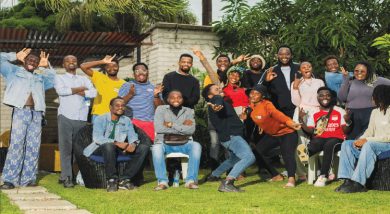‘I wrote about life experiences’
United States of America-based Malawian author and educator Carol Kautsire has just released her second memoir titled Some Kind of Girl. This follows her first memoir What Kind of Girl? released three years ago. Kautsire wrote more about her background in Malawi. In this interview with our arts editor EDITH GONDWE, Kautsire discusses more about the book. Excerpts:

to leave one’s homeland behind
Q
: What is the new book all about?
A
: This is a story about an intelligent yet mischievous girl from Malawi, who moves to America and is influenced by American traditions, and, therefore, takes risks as she tries to understand her identity as a black immigrant seeking to defy the social and cultural expectations from her upbringing in Africa. In my first book, What Kind of Girl?, which was published on July 31 2020, I recount how I struggled to meet the cultural expectations for well-behaved young girls in Malawi. As a result, I saw my opportunity to move to America as an escape from the Malawian traditions that required girls to be passive and submissive. For my second book, Some Kind of Girl, I recount the events which have shaped who I am as a diaspora individual. Upon arriving in America, I immediately faced the America immigration system, creating the struggle to maintain legal status as a working student. Furthermore, the book illustrates how adjusting to the American culture conjured new complexities to my identity. I recount how I grappled with race, gender, language, sexuality and God in my effort to be true to myself. In the end, running away from who I was in Malawi only brought me to an America I could not live in without remembering what I learned about well-behaved girls in Malawi.
Q
: What are some key experiences that you encountered when you first arrived in the USA?
A
: I experienced a bit of culture shock about the America I was experiencing in comparison to the America I saw on T.V. When I arrived in America, I wanted to remove everything Malawian from my identity, clothes, cultural ideas, behaviour and even my Malawian accent. This was poor thinking that led me to alter my identity because I really wanted to fit into everything American. Upon arriving in America, I became very introverted because I felt that Americans spoke so fast. I spoke less at first because I was studying how people in America communicate. This, of course, changed with time and understanding. Once I learned how people connect, I became really good at engaging in cross-cultural conversations. There were moments where I also experienced imposter syndrome at school. I felt like American universities were accepting an African who didn’t deserve to be there. I felt like a fraud, but today I realize that I feared the process of learning a new culture. It was like learning how to be a human being all over again—and that frightened me.
Just like in Malawi, when I moved to America, I still struggled with my body image and I used gendered-fashion to compensate for my insecurities—especially my fear of not being feminine enough. I dressed how I felt, but America allowed me to explore new fashion that made me feel more comfortable in my athletic body.
I was also dealing with some stigmas about young professors. I wanted to push back against ideas that young professors will mess up their career along the way, that they won’t be taken seriously or that they will get fired for doing something inappropriate. So I became very strict about my behaviour, about what I could and couldn’t do.
Q
: What do you aim to achieve or communicate in this memoir?
A
: It is my hope that this memoir will speak to an audience in America, Africa and beyond. I want readers to know what it’s like to leave one’s homeland behind and to build another home in a foreign land. For young women and any children who do not easily fit into gender categories, this book can help by letting them know they are not alone as they face the awkwardness and complexities of identity. It is the kind of book that can interest the children of African immigrants to learn to understand their own family histories and struggles to adjust to a new culture. It speaks to young adults who are exposed to American television and pop culture, illustrating the influence it has on young minds through an African girl’s perspective. And it speaks to a religious audience, addressing how a young child can struggle to understand the place of God in her life. But more importantly, it is for those who want to delve into something vivid and evocative, something uncomfortable and unapologetically honest, and something profound enough to enlighten them on experiences which they may not have undergone.





